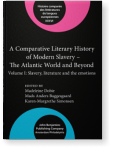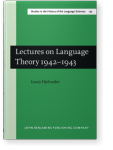A Comparative Literary History of Modern Slavery
The Atlantic world and beyond
Edited by Madeleine Dobie, Mads Anders Baggesgaard and Karen-Margrethe Simonsen
The first volume of A Comparative Literary History of Modern Slavery explores literary representations of enslavement with a focus on the emotions. The contributors consider how the diverse emotions generated by slavery have been represented over a historical period stretching from the 16th century to the present and... full description

